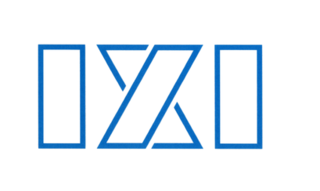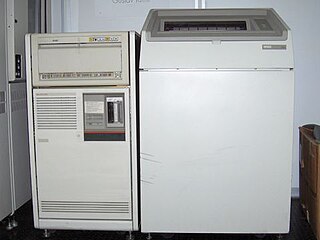
ZDNET is a business technology news website owned and operated by Red Ventures. The brand was founded on April 1, 1991, as a general interest technology portal from Ziff Davis and evolved into an enterprise IT–focused online publication.

The Santa Cruz Operation, Inc. was an American software company, based in Santa Cruz, California, that was best known for selling three Unix operating system variants for Intel x86 processors: Xenix, SCO UNIX, and UnixWare.

IXI Limited was a British software company that developed and marketed windowing products for Unix, supporting all the popular Unix platforms of the time. Founded in 1987, it was based in Cambridge. The product it was most known for was X.desktop, a desktop environment graphical user interface built on the X Window System. IXI was acquired by the Santa Cruz Operation (SCO) in February 1993.

UnixWare is a Unix operating system. It was originally released by Univel, a jointly owned venture of AT&T's Unix System Laboratories (USL) and Novell. It was then taken over by Novell. Via Santa Cruz Operation (SCO), it went on to Caldera Systems, Caldera International, and The SCO Group before it was sold to UnXis. UnixWare is typically deployed as a server rather than a desktop. Binary distributions of UnixWare are available for x86 architecture computers. UnixWare is primarily marketed as a server operating system.

Unix System Laboratories (USL), sometimes written UNIX System Laboratories to follow relevant trademark guidelines of the time, was an American software laboratory and product development company that existed from 1989 through 1993. At first wholly, and then majority, owned by AT&T, it was responsible for the development and maintenance of one of the main branches of the Unix operating system, the UNIX System V Release 4 source code product. Through Univel, a partnership with Novell, it was also responsible for the development and production of the UnixWare packaged operating system for Intel architecture. In addition it developed Tuxedo, a transaction processing monitor, and was responsible for certain products related to the C++ programming language. USL was based in Summit, New Jersey, and its CEOs were Larry Dooling followed by Roel Pieper.

Computer Gaming World (CGW) was an American computer game magazine published between 1981 and 2006. One of the few magazines of the era to survive the video game crash of 1983, it was sold to Ziff Davis in 1993. It expanded greatly through the 1990s and became one of the largest dedicated video game magazines, reaching around 500 pages by 1997.

Univel, Inc. was a joint venture of Novell and AT&T's Unix System Laboratories (USL) that was formed in December 1991 to develop and market the Destiny desktop Unix operating system, which was released in 1992 as UnixWare 1.0. Univel existed only briefly in the period between AT&T initially divesting parts of USL in 1991, and its eventual outright purchase by Novell, which completed in June 1993, thereby acquiring rights to the Unix operating system. Novell merged USL and Univel into their new Unix Systems Group (USG).
Guy Johan Kewney was a British journalist, regarded by some as the first UK technology journalist.

The MicroVAX is a discontinued family of low-cost minicomputers developed and manufactured by Digital Equipment Corporation (DEC). The first model, the MicroVAX I, was first shipped in 1984. They used processors that implemented the VAX instruction set architecture (ISA) and were succeeded by the VAX 4000. Many members of the MicroVAX family had corresponding VAXstation variants, which primarily differ by the addition of graphics hardware. The MicroVAX family supports Digital's VMS, ULTRIX and VAXELN operating systems. Prior to VMS V5.0, MicroVAX hardware required a dedicated version of VMS named MicroVMS.

Gizmodo is a design, technology, science and science fiction website. It was originally launched as part of the Gawker Media network run by Nick Denton, and runs on the Kinja platform. Gizmodo also includes the sub-blogs io9 and Earther, which focus on pop-culture and environmentalism respectively. Since April 2019, Gizmodo is part of G/O Media, owned by private equity firm Great Hill Partners.
Michael Magee is a British journalist. He is credited with introducing a tabloid-style approach to the coverage of technology news. In 2009 the Daily Telegraph placed Magee 35 in its list of Top 50 most influential Britons in technology.

X.desktop was an early desktop environment graphical user interface built on the X Window System. It was developed and sold during the late 1980s and early 1990s by IXI Limited, a British software house based in Cambridge. Versions of X.desktop were available for over 30 different UNIX operating system platforms and it was licensed to various vendors, including IBM, Compaq, Locus Computing Corporation, BiiN and Acorn Computers, the latter licensing it in 1988 for its future workstation products.
Newsbytes News Network, called "an Associated Press for tech-information junkies" was founded in May, 1983 in San Francisco, California by broadcast journalist Wendy Woods Gorski, who remained editor in chief for the 19 years. Continually published from 1983 to 2002, Newsbytes covered breaking news in consumer technology including computing, interactive media, telecommunications and cybersecurity, spanning the formative years of Silicon Valley and the advent of personal computers.
Visionware Ltd was a British software company that developed and marketed products that helped integration of Microsoft Windows clients to Unix-based server applications. It was based in Leeds in West Yorkshire. The three products it was most known for were PC-Connect, XVision, and SQL-Retriever.

Human Computing Resources Corporation, later HCR Corporation, was a Canadian software company that worked on the Unix operating system and system software and business applications for it. Founded in 1976, it was based in Toronto.
Systime Computers Ltd was a British computer manufacturer and systems integrator of the 1970s and 1980s. During the late 1970s and early 1980s, Systime become the second largest British manufacturer of computers, specializing in the minicomputer market.
Parallel Computers, Inc. was an American computer manufacturing company, based in Santa Cruz, California, that made fault-tolerant computer systems based around the Unix operating system and various processors in the Motorola 68000 series.

Unix Expo was a conference and trade show that focused on the Unix operating system, and software based on Unix, in the information technology sector. It ran from 1984 through 1996 and was held in New York City during the autumn season. The show was owned and managed by the Blenheim Group.
Chorus Systèmes SA was a French software company that existed from 1986 to 1997, that was created to commercialise research work done at the Institut national de recherche en informatique et en automatique (INRIA). Its primary product was the Chorus distributed microkernel operating system, created at a time when microkernel technology was thought to have great promise for the future of operating systems. As such Chorus was in the middle of many strategic partnerships regarding Unix and related systems. The firm was acquired by Sun Microsystems in 1997.

Parallax Graphics, Inc., was an American developer and manufacturer of high-specification computer graphics cards for various platforms, and of supporting software. The company was founded in 1982 as Parallax Systems by two Cornell University graduates.













